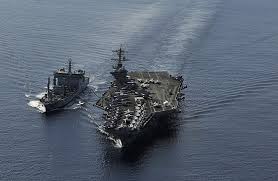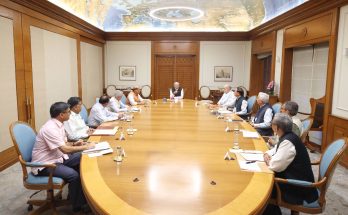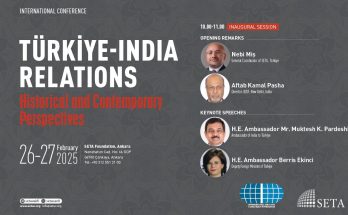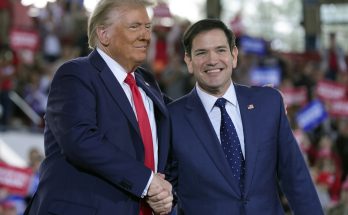Amid growing concerns over China’s assertive postures in the maritime domain, the US has renewed the pitch to revive the quadrilateral security dialogue, which is envisaged to include the US, India, Japan and Australia, the four leading democracies in the extended Asia-Pacific region. The controversial proposal is set to be resented by China, which had in the past opposed such mechanisms as a way to counter its rise on the global stage.
US Pacific Command chief Admiral Harry Harris eloquently argued for the quad initiative in his address at the ongoing ‘Raisina Dialogue’ in New Delhi on March 2, which has brought together ministers, diplomats and strategic experts from around the world to debate the geopolitics of an evolving Asian order.
“One idea to consider is initiating a quad-lateral security dialogue among India-Japan-Australia and the US,” he said. Admiral Harris backed recent remarks by US ambassador to India Richard Verma, saying the American and Indian navies would “steam together” in Asia-Pacific in “the not too distant future”.
Getting India into the quad fits into the larger narrative of the growing strategic partnership between the world’s two largest democracies. The defence relations have seen a major upswing in the past few months, with the two sides moving ahead with plans for joint manufacturing of cutting-edge weaponry under the Defence Technology and Trade Initiative (DTTI). Washington has been trying to get India to sign some of the long-pending agreements such as the Logistics Support Agreement (LSA), the Communication Interoperability and Security Memorandum Agreement (CISMOA) and the Basic Exchange and Cooperation Agreement for Geo-Spatial Cooperation (BECA). These negotiations have been on for over a decade.
India’s defence ministry is still not fully convinced about BECA and CISMOA. However, recent reports suggest that the LSA is likely to be finalised during US Defence Secretary Ashton Carter’s visit to India in April. The US has inked agreements similar to LSA with most of its strategic partners except India. The LSA will bring the two militaries closer by providing logistic support, refuelling and berthing facilities for each other’s warships and aircraft on an equal-value exchange basis.
Drawing parallels between US relations with NATO and India, Admiral Harris said: “Our offers to provide Indian forces with Apache attack helicopters — the most advanced in the US inventory — Chinook heavy-lift helicopters and M-777 howitzers are akin to our defence relationships with our closest NATO allies.”
Author Profile
- India Writes Network (www.indiawrites.org) is an emerging think tank and a media-publishing company focused on international affairs & the India Story. Centre for Global India Insights is the research arm of India Writes Network. To subscribe to India and the World, write to editor@indiawrites.org. A venture of TGII Media Private Limited, a leading media, publishing and consultancy company, IWN has carved a niche for balanced and exhaustive reporting and analysis of international affairs. Eminent personalities, politicians, diplomats, authors, strategy gurus and news-makers have contributed to India Writes Network, as also “India and the World,” a magazine focused on global affairs.
Latest entries
 India and the WorldJune 26, 2025Operation Sindoor: India Sheds Restraint, Rediscovers Utility of Force
India and the WorldJune 26, 2025Operation Sindoor: India Sheds Restraint, Rediscovers Utility of Force India and the WorldJune 23, 2025BRICS summit in Rio to focus on Global South, local currency trade
India and the WorldJune 23, 2025BRICS summit in Rio to focus on Global South, local currency trade Africa InsightsJune 11, 2025New Opportunities in India-Japan Cooperation in Africa
Africa InsightsJune 11, 2025New Opportunities in India-Japan Cooperation in Africa India and the WorldMay 23, 2025Post-Operation Sindoor, India reminds Turkey, China of concerns and sensitivities
India and the WorldMay 23, 2025Post-Operation Sindoor, India reminds Turkey, China of concerns and sensitivities








